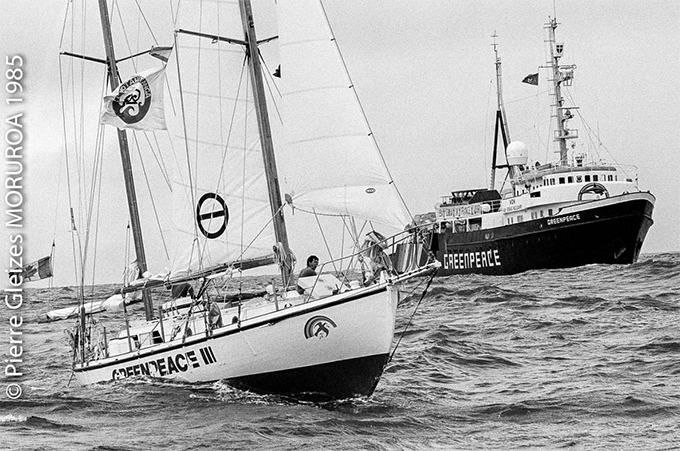
Compensation for the victims of three decades of French nuclear tests in the South Pacific was a focus of President François Hollande’s visit to French Polynesia this week, his first stop on a tour of Oceania and Latin America.
Hollande‘s first move was to lay a wreath at the grave of Pouvanaa a Oopa, the campaigner for Tahitian independence considered the founder of Tahiti’s modern political culture.
But the focus of the visit was very much on the victims of 193 nuclear tests carried out by France between 1966 and 1996 on the atolls Moruroa and Fangataufa.
The French president acknowledged on Monday in Pape’ete that the nuclear tests conducted in French Polynesia had affected the environment and the health of the islands.
“I recognise that the nuclear tests conducted between 1966 and 1996 in French Polynesia had an environmental impact, and caused health consequences,” he said.
Hollande said he wanted to “turn the page” on nuclear tests, while hailing Polynesia’s crucial role in developing France’s nuclear capabilities.
Without its overseas territories, “France would not now have nuclear weapons and the power of dissuasion”, he said, using the French expression for nuclear deterrence.
Process review
Hollande also announced a review of the application process for compensating the victims of the tests. Only about 20 people have received compensation for the spread of cancers allegedly linked to the tests from among some 1000 plaintiffs.
France’s “nuclear debt” owed to Polynesia, dubbed the “Chirac Billion” (in francs, now worth about NZ$25 million), is an annual payment to the islands that has been reduced year after year, and which Polynesians want to be made permanent.
Hollande’s arrival in the Wallis and Futuna islands marked the first time a French president had visited Wallis since Valéry Giscard d’Estaing in 1979 and the first-ever visit to Futuna.
The far-flung Pacific islands are among many French Overseas Departments and Territories scattered around the world, vestiges of France’s colonial empire that today still boast an aggregate coastlines, or Exclusive Economic Zones, second only to those of the United States.
Hollande was due to fly to Peru, followed by Argentina and Uruguay later in the week – where he is set to promote scientific, cultural and university ties.
Although he is travelling with a delegation of business leaders from top French firms such as Carrefour and Thales, no major economic deals are expected to be signed on the trip.












































